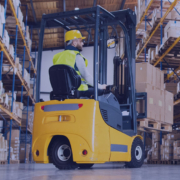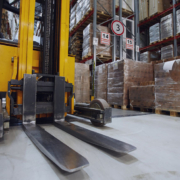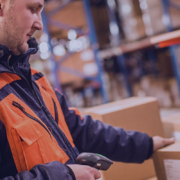The right barcode scanning solution enhances order fulfillment and asset visibility. For almost 50 years, supply chains have been leveraging barcoding solutions because they can help meet emerging consumer demands, such as fast shipping and 100% order accuracy. Studies indicate that 65% of consumers are willing to pay more for faster shipping and 73% claim they would order more frequently from a vendor following an early or timely delivery. On the other hand, studies reveal that 66% of consumers would stop ordering from a company following a late delivery.
Consumers’ willingness to stop ordering from a company after just one late order forces businesses to adapt. Unforgiving consumer expectations can weigh on traditional solutions and force businesses to implement solutions like RFID and Fixed Industrial Scanners (FIS) that increase accuracy. While traditional barcoding solutions can read barcodes dependably, they can struggle to keep up with shifting consumer demands. When your workers have solutions that can’t keep up with consumer demands, your operation can suffer from:
- Incomplete inventory visibility
- Recurrent downtime from broken devices
- Dissatisfied employees and lost customers
Solutions like RFID technology and FIS can differ from traditional data capture. Here are the specific benefits of each solution to help you consider which one is best for your business:
- Traditional barcoding for automated data recording – General-purpose scanning still improves operations since it mitigates errors associated with manual data entry. Traditional barcoding enables faster and more accurate information transfer to improve order movement and asset tracking, which ultimately save your organization time and money.
- RFID technology for dependable visibility in challenging environments – When processing multiple similar SKUs in less time, traditional data capture may not always be the suitable option for large-scale, busy distribution centers. RFID solutions are meant to quickly and accurately process large amounts of data in larger environments. Furthermore, RFID devices are purpose-built for rugged performance and support real-time locationing, making these solutions more beneficial for fast-paced environments where stock numbers change by the hour.
- Fixed Industrial Scanners for minimal touchpoints and disruptions – For a more robust, automated solution, Fixed Industrial Scanners (FIS) provide stable and accurate scanning in difficult places and challenging conditions, all without human participation. FIS is typically used on high-speed conveyor lines or in 24/7 operations to fully automate item scanning, verification and routing, optimize material flow, and redirect incorrect items. FIS also delivers immediate alerts of any inaccuracies and prevents misplaced or stolen products.
A business can meet tough customer demand by boosting its scanning capabilities with devices that offer durable designs, higher read rates, and versatile features. Learn about the difference between traditional data capture, RFID and FIS with Avalon.












